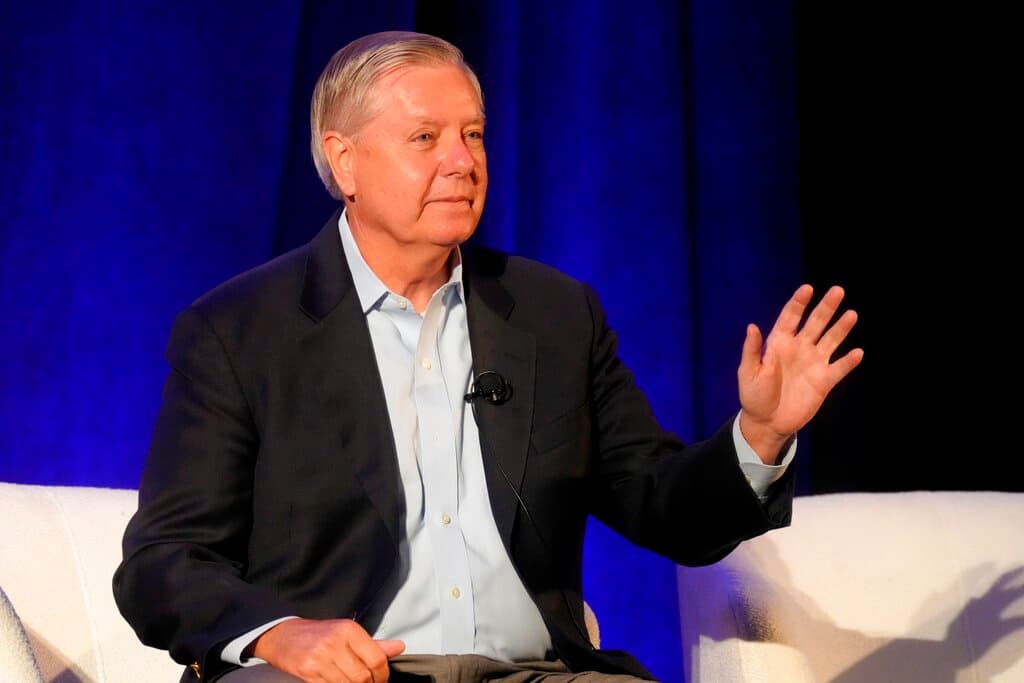Court Splits the Difference With Lindsey Graham Over Speech and Debate Clause
After a constitutional defeat, Senator Graham will be forced to answer questions about alleged criminal interference in the 2020 presidential election.

Senator Graham will be forced to answer questions before a grand jury investigating allegations of criminal interference in the 2020 presidential election. That possibility became an inevitability on Thursday after a district court judge, Leigh Martin Michaels, declined to extend constitutional protection to enable Mr. Graham to avoid testifying.
At issue was the Constitution’s Speech and Debate Clause, which promises that senators and representatives “shall not be questioned in any other Place” besides their own chambers, when they conduct their duties. Courts have taken this to mean that when “acting in the sphere of legitimate legislative activity,” lawmakers are protected from inquisition.
In applying that principle to Mr. Graham’s circumstances, Judge Martin opted for a “partial quashal” of the subpoena, meaning that the senator will have to answer questions on some matters but not others. She thus split the baby between Mr. Graham’s desire for a full quashal and the district attorney’s argument that the senator’s activities in Georgia warranted no protection.
Prosecutors will not be able to inquire about “investigatory fact-finding on the telephone calls to Georgia election officials, including how such information related to his decision to certify the results of the 2020 presidential election.” Those topics, Judge Martin ruled, were “legislative” in nature.
The Speech and Debate Clause will not protect discussion of “any alleged efforts to encourage Secretary Raffensperger or others to throw out ballots or otherwise alter Georgia’s election practices and procedures.” Also fair game will be questions about his “alleged communications and coordination with the Trump Campaign and its post-election efforts in Georgia.”
The court ruled that Mr. Graham’s phone calls to Mr. Raffensperger “are not manifestly legislative on their face,” and instead proposed “a more granular analysis of the phone calls and the activities and inquiries that allegedly took place on the calls.” This analysis suggests that “a member’s individual investigative efforts” may in certain circumstances be deserving of protection.
Here, if Mr. Graham “was merely asking questions about Georgia’s then-existing election procedures and allegations of voter fraud in the leadup to his certification vote,” he will not be vulnerable to grand jury questioning. However, “any such “cajoling,” “exhorting,” or pressuring of Secretary Raffensperger” to alter the election’s result leaves Mr. Graham exposed.
Judge Martin also ruled “that the grand jury may inquire into Senator Graham’s alleged communications and coordination with the Trump Campaign and its post-election efforts in Georgia, as well as into Senator Graham’s public statements related to Georgia’s 2020 elections.”
In other news in the accelerating criminal case, Judge Martin ruled that the governor of Georgia, Brian Kemp, must likewise testify before the grand jury. However, she delayed that appearance until after Mr. Kemp’s re-election campaign concludes on Election Day, November 8.

